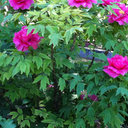Evaluation of extracts prepared from 16 plants used in Yao ethnomedicine as potential anticancer agents.
Keywords
Abstract
BACKGROUND
Medicines of the Yao ethnic group in China are a special branch of traditional Chinese medicine (TCM) and are well documented for use in disease prevention. According to an ethnopharmacological survey, there are 1392 species of medicinal plants that have been documented as Yao ethnomedicines and 104 of these species are used routinely. This study evaluated a partial collection of these 104 core plant species for their potential as anticancer agents.
METHODS
A literature study of scientific journals and books in the local language was conducted. Based on an ethnopharmacological survey, 16 plant species widely used in Yao ethnomedicine were collected and 64 plant extracts were prepared from these plants. in vitro cytotoxicity screening was conducted with a panel of four human cancer cell lines, lung cancer A549, breast cancer BT20 and MCF-7, bone cancer U2OS. The potential toxicity of the extracts was evaluated using two normal human cell lines, human peripheral lung epithelial cells (HPL1A) and human umbilical vein endothelial cells (HUVEC). Additionally, the 10 extracts that demonstrated cytotoxicity in cancer cells with an IC50 of less than 25.0µg/mL were examined for the ability to induce apoptosis in U2OS cells.
RESULTS
The up-to-date information regarding the traditional uses, pharmacological and biological activities, as well as the chemical constituents of the 16 plants are presented. Extracts from all 16 plants showed cytotoxicity against one to four of the human cancer cell lines and the cytotoxic effects of extracts from Melaleuca leucadendra, Stephania longa, Microsorium fortune and Bidens biternata were demonstrated for the first time. The highest anticancer potential was observed for extracts prepared from Melaleuca leucadendra Linn against all tested cancer cells (BT20, A549, U2OS, and MCF7) with an IC50 range of 3.1-32.7µg/mL. The selectivity index of the active samples varied from 0.1 to 25, and five extracts from Bidens biternata, Wedelia calendulacea, Stephania longa and Achras zapota showed significant selectivity against cancer cell lines versus normal cell lines. All tested extracts induced apoptosis in U2OS cells, and for the first time extracts from Melaleuca leucadendra and Microsorium fortune were shown to induce apoptosis.
CONCLUSIONS
We demonstrated the in vitro anticancer efficacy and safety of 16 medicinal plants that have been historically used in Yao ethnomedicine. This study provides evidence to assist the clinical practice of Yao ethnomedicine and the development of chemotherapeutic agents from extracts prepared from these plants.



